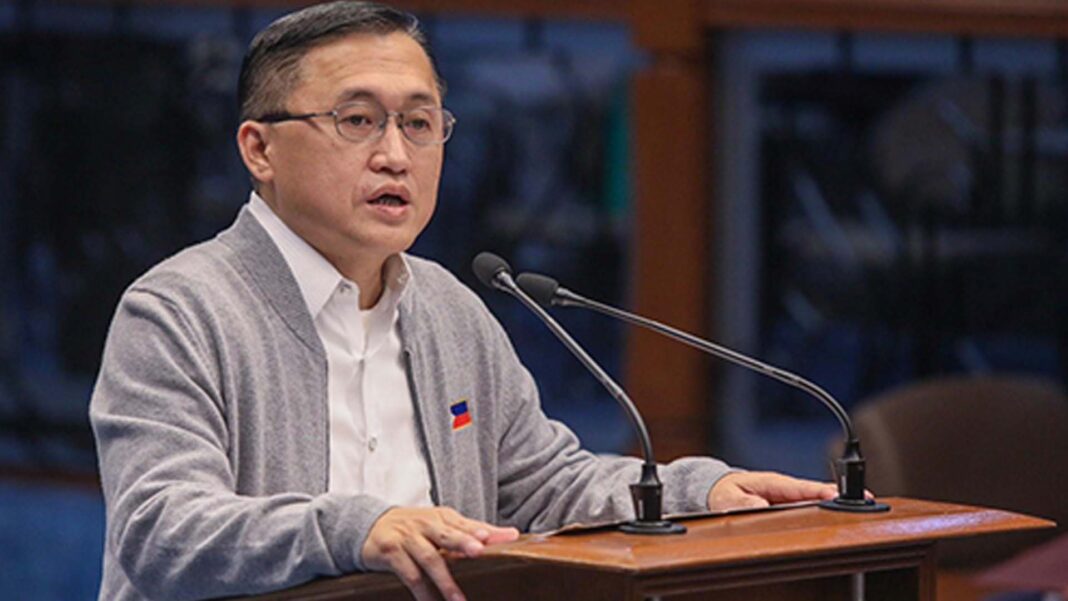Senator Christopher “Bong” Go reiterated his full support for the proposed 2024 National Expenditure Program for State Universities and Colleges (SUCs), Commission on Higher Education (CHED), as well as for the Development Academy of the Philippines (DAP), as Senator Pia Cayetano officially noted on record during a Senate Finance Subcommittee hearing on Monday, October 2 which she presided over.
“Education is the cornerstone of our nation’s progress. I stand firmly behind the proposed budgets for CHED, DAP, and SUCs as they are instrumental in shaping our future leaders,” said Go, who is pushing for comprehensive legislative initiatives to enhance the country’s education sector.
“Nanawagan ako ng pagkakaisa at pakikipagtulungan ng mga SUCs kasama na ang CHED at iba pang ahensya ng gobyerno, at mga kapwa ko mambabatas na patuloy nating isulong ang mga inisyatibo para sa kinabukasan ng mga kabataan dahil ang maayos na edukasyon ang tanging puhunan natin sa mundong ito,” he reiterated.
Go has been a vocal advocate of maintaining education as a top priority in the country. He has pledged to support policies that not only strengthen the education sector but also prioritize the health and well-being of students.
This current Congress, the senator co-authored and co-sponsored Senate Bill No. 1359, known as the No Permit, No Exam Prohibition Act. This proposed measure aims to penalize educational institutions that prevent students from taking exams due to unpaid tuition or other school fees.
Another bill co-authored and co-sponsored by Go, SBN 1864 or the Student Loan Payment Moratorium During Disasters and Emergencies Act, passed its third and final reading in the Senate recently. The bill is designed to offer relief to students who are unable to repay loans due to unforeseen disasters and emergencies.
Go also filed SBN 1190, which proposes to expand the purposes and applications of the Special Education Fund of local government units for the operation and maintenance of public schools, payment of salaries and benefits for teaching and non-teaching personnel, competency training, operation of the Alternative Learning System (ALS), and educational research, among other things.
Go’s legislative portfolio also includes co-authoring Republic Act No. 11510, which institutionalized the ALS and improved basic education delivery to underserved and disadvantaged students. This includes indigenous students, those with less privileged backgrounds, and those with physical and learning disabilities.
Moreover, Go co-authored SBN 94, the Teaching Supplies Allowance Act of 2022, which aims to increase the annual “chalk allowance” provided to teachers, thereby relieving them of the financial burden of purchasing classroom supplies.
He also co-authored and co-sponsored SBN 1360, which seeks to expand the coverage of the tertiary education subsidy (TES) by amending Republic Act No. 10931, or the Universal Access To Quality Tertiary Education Act.
“Kung maipasa natin ito, mas mabibigyan natin ng pagkakataon ang mga qualified and deserving students natin na makakuha ng kalidad na edukasyon,” Go emphasized.
“Ito ang rason kung bakit isinabatas noong panahon ni dating pangulong Rodrigo Duterte ang Republic Act No. 10931, o ang Universal Access To Quality Tertiary Education Act. Ako rin ay nag co-author at co-sponsor ng panukalang Senate Bill No. 1360 na layuning mas palawakin pa ito lalo,” he added.
Moreover, Go stated that education is not just about academics but about creating a holistic environment where students can thrive mentally, emotionally, and physically. This is why he has co-authored and co-sponsored Senate Bill No. 2200, known as the proposed Basic Education Mental Health and Well-Being Promotion Act.
This bill aims to provide comprehensive mental health support for the youth in the country’s basic education system, mandating both private and public schools to integrate mental health education and support services into their curriculum.
Furthermore, Go has also been pushing for the passage of his proposed SBN 1786, which seeks to mandate public higher education institutions to establish Mental Health Offices on their campuses. This aligns with his belief that mental health should receive the same level of attention and care as physical health.



















